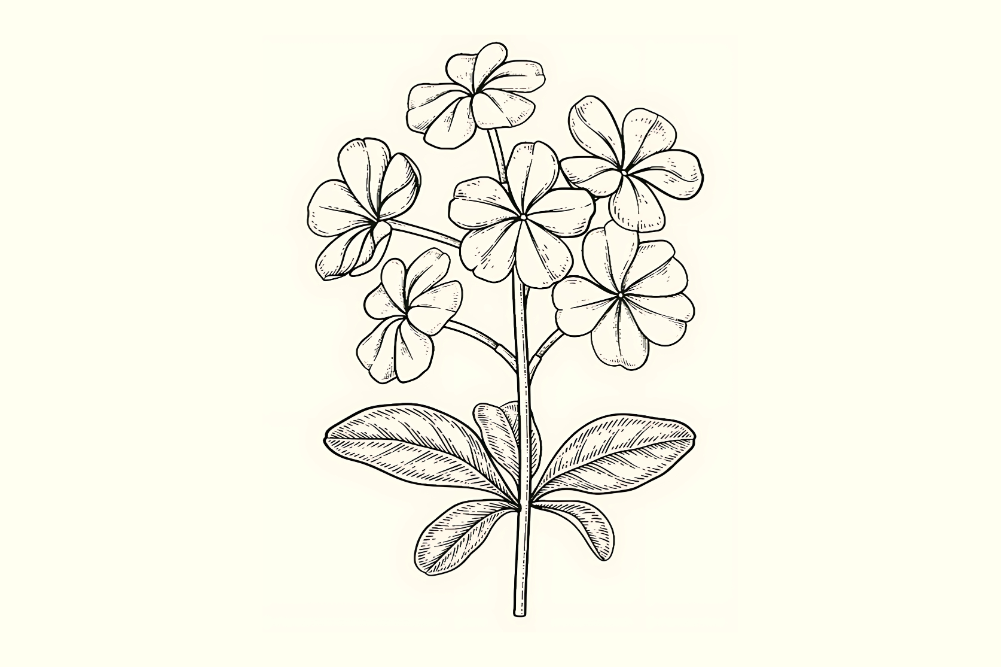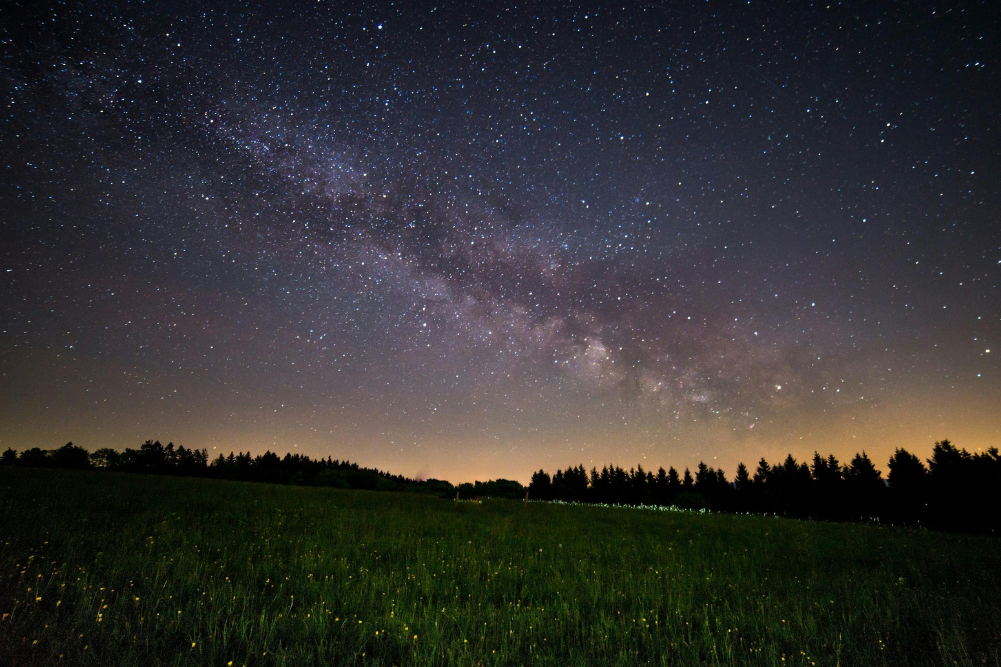Amanda McKenzie – when passion ignites vision
For almost two decades Amanda McKenzie has been at the forefront of the public debate on climate change. Her life and achievements are a testament to bravery, deep conviction and a search for a meaningful life.
Amanda McKenzie is a leading voice advocating for action on climate change in Australia and internationally, but more than that she is a creator who makes things happen. At an early age she was founding climate advocacy groups, and in 2009 she was named Young Environmentalist of the Year. Along the way she has taken on big business, politicians and prime ministers as she has courageously fought the fight to save humanity and the planet. Today she is the doting mother of a one-year-old boy and a four-year-old daughter as well as being CEO of the Climate Council, an independent publicly funded organisation that provides evidence-based information and policy recommendations on climate change. McKenzie’s story is one of startling clear insight into the major challenge of our time combined with an impelling understanding of how to get things done and hope for a better future.
Origins of a climate warrior
Having started her career in climate at a young age it is tempting to imagine a young Amanda McKenzie championing environmental causes in the playground. In reality though, there was a lightbulb moment when climate crystallised as her life’s purpose, and it came in an unlikely setting. McKenzie recalls, “At school I was very passionate about music, drama and sport. We had a big kayaking focus at our school, and I was kayaking captain. I was also music captain and played the clarinet. In fact, I almost applied to do music at university. I was debating between music and science and then I had this moment when I was at schoolies in Byron Bay.”
It is a mark of how far McKenzie stands out from the crowd that amid the exploratory exuberance of schoolies she was asking herself the big questions. She observes, “I took myself off one morning and sat on the beach, and I remember thinking to myself, ‘What do I want to do with my life?’ It seems very naïve now, but I wrote down, ‘I want to save the world from environmental pollution.’”
With that ambitious thought in mind, McKenzie enrolled at university in a combined arts and science degree. “I’ll do science and I’ll come up with some sort of invention to save the climate,” she laughs. “Then, as I got into third year chemistry, I realised that this wasn’t the space where I am most passionate. I really loved what I was doing in my arts degree, which was the politics, the history and how you change society. I got really interested in that, so that’s why I went down the law path.” The end result was an arts degree from the University of Melbourne and honours in law at Monash University.
When asked where her approach to life may have come from, she pauses, before answering in a typically considered way. “My dad used to take us on camping trips a lot. He’s a scientist by training, and he would be teaching us how things work and our place in this world. I grew up with that real sense of wonder and passion for the natural world.
“My parents both have a very strong ethos around social justice and were very passionate about helping in the community. It was never something they talked about, but my parents, both in their work and in the way that they showed up in the world, contributed to the community. My mum’s
a psychologist, so she helps people, and she is also a teacher of other psychologists. She has always been very much in that helping space. My father is very community-minded; he runs a local archery club and he was on things like the school council. It was never something said, it was just something that you do, you contribute, and that’s the way we show up in our family.”
Hence, McKenzie grew up interested in a breadth of issues around social justice, indigenous rights, the environment and asylum seekers among other things. She reflects, “By the time I got to looking at climate change I saw that this affects everything. That’s why it solidified for me that climate change was the thing that I was going to work on. It captures both the importance of the environment but is also a huge social justice issue.”
After a couple of decades of working in the climate advocacy space, McKenzie has a clear sense of where we are and what needs to be done to address climate change.
The art of change-making
At the age of just 23 McKenzie co-founded the Australian Youth Climate Coalition. She has led Australian youth delegations to United Nations Climate Change conferences in Bali, Pozna and Copenhagen. In 2011 she joined the Climate Commission as a senior communications adviser, and when the Commission was dissolved by the Abbott government in 2013 she relaunched the organisation as the not-for-profit Climate Council, driving a crowdfunding campaign that garnered $1.3 million from 16,000 people in 10 days.
It is impressive when someone so young achieves so much, but creating things in this world is no easy task, as McKenzie can attest. “Establishing organisations, which my career has ended up centring around, can often be quite thankless,” she ponders. “You are always striving. That’s something I’ve found in my life; I’m always trying to push for something to be different, for things to change in the world. Sometimes I think it would be nice to just not try and change anything, to just sit with it, but that’s not in my personality. I’m always interested in how things can be better.”
Dealing with adversity is part of any life path, and a challenge for McKenzie came with the dissolution of the Climate Commission in 2013. The widespread story goes that when the Abbott government made the decision, McKenzie turned to Tim Flannery (palaeontologist, environmentalist, author of several best-selling books on climate change and Australian of the Year 2007) and said, “How about we make this a public institution and get it funded as a not-for-profit?” The reality of course, is a touch more involved.
“That conversation did happen at Canberra airport,” McKenzie relates. “We were just sitting together, and I had been percolating on this idea and it was about six months before the Climate Commission was dissolved. I was very conscious that if it was revealed to government ministers that this was our plan that they would easily scuttle it. So we had a very tight group of people, just Tim, myself and the other councillors who came on later. I’d written a plan of how I thought we could launch if the Commission was abolished. I talked to an agency that did web design and brand design and a media communications agency. I’d said to them, ‘I’ve got a really interesting project that may or may not happen, but I’ll need you to give me a week of time really suddenly.’ They both said, ‘That sounds strange, but OK.’” The Commission was abolished, and within a day of launching a crowdfunding campaign to start the Climate Council, McKenzie and her colleagues had raised $500,000 and then within another day they had raised $1 million. The rest is history, and the Climate Council remains community funded and independent. Led by experts in climate science, health, energy, and extreme weather it provides Australians with evidence-based information and policy recommendations.
Any time you stick your head above the parapet you are bound to attract criticism, and McKenzie hasn’t just stuck up her head, she has stood astride the parapets and shouted. It is unsurprising then that she has faced doubt and criticism along the way.
Dealing with doubt and criticism
McKenzie is forthright in her public discourse and she is also charmingly frank in talking about herself. When asked if she ever experiences doubt, she responds quickly, “Oh yes, all the time. I’m often scared, but I tell myself it’s time to be brave and I literally talk myself through the scale of the climate crisis and say to myself, ‘This is happening, and this is the time for people like you to be brave; you’re in a position to make a difference.’ I also have this mental image of having inside me a little gold ball that has a glowing sense of who I am and nothing external can touch that. The ball is just me, it’s there for me to talk to myself. A sense of the essence of who you are, knowing who you are and believing in what you are doing is vital as it allows you to be brave when you need to be.”
The natural leader in McKenzie reveals herself as she adds, “I tell my staff this as well: if you are feeling uncomfortable then that is probably a moment where you need to be brave. If I’m shying away from something and it’s because I’m scared of it, I force myself to do it.”
Putting yourself in uncomfortable positions is inevitable when advocating for what you believe in, and part of that discomfort is receiving criticism along the way. McKenzie acknowledges, “I have received death threats, I’ve had people calling my phone and just breathing heavily, and a whole range of really negative stuff. I’ve had times where we have been very vocal criticising certain politicians and I’ve had those politicians on the phone yelling at me.” Typically, McKenzie has a philosophy to deal with those difficult moments. “I have learned,” she says thoughtfully, “that when you get criticism it is a sign that you are doing something courageous. I suspect that if you are in a space where you are never being criticised then you are probably not doing your job. If we are riling up people who don’t want action on climate change and they aren’t happy with what we are saying, then we are probably in the right spot.”
Climate commitment: treasure, time and voice
McKenzie has a precise view on the thinking that has led to our climate issues. She says, “The ideas around circular economy and so forth are a major philosophical change in that previously we have thought there is an outside to the environment that we live in, that there is always ‘somewhere else’ that we can put our waste. The truth is that there is only one environment, and we all have to live here. So anything that is ‘waste’ must be an input to some other process that is useful.”
As far as business goes McKenzie has clear advice: “Anyone who exists on the planet right now with a sphere of influence, this is your responsibility. I often speak to board rooms, and it has struck me that everyone feels like they don’t have much of an influence. Malcolm Turnbull has said, ‘Oh well, I was just prime minister, I couldn’t get everything done.’ This issue is so big that everyone feels small in relation to it, but it’s really a matter of anyone who has any sphere of influence, and we all do, making a difference. It’s not about changing the world; it’s about making change in your sphere.”
McKenzie has a message for individuals of equal clarity. “Think about your treasure, your time and your voice,” she says. “Treasure refers to thinking about where your money is invested and shifting it to institutions that are not investing in fossil fuels. Time refers to not just doing things within your own home but thinking about how you can give time to work within your community to be doing things that help us get a sense of momentum, like helping to get solar panels on the roof of the school. Your voice is about writing to the paper, calling to the radio, contacting politicians. It is about finding the right balance for an individual; no one is going to have exactly the same way of engaging with the issue, but it is important to find your way of contributing to the momentum for change.”
Molecules of hope and meaning
Her work around climate is vitally important to McKenzie, but she is obviously devoted to her two children. She notes, “I lived quite an unbalanced life before having children in the sense that I was just work, work, work. I love my work, but children force you to be mindful and to enjoy life. My kids have made me braver too, and less focused on what someone else might think of me. I believed in everything I was doing before, but having children has just focused it even more because I think, ‘What will things be like at the turn of the century?’, because both of my kids will likely be alive at that point.”
McKenzie relishes parenting her children, but she also revels in nurturing and steering her other child, the Climate Council. Just like parenting children, managing an organisation is an evolutionary process for her. “Part of what we do every year,” McKenzie says, “is interrogated our strategy and ask, ‘What has changed? What is different?’ The worst-case scenario for me as the CEO of an organisation is that we just do busy work, just surfing this increasingly large wave of momentum on climate change without actually doing anything that is enhancing or building that wave. I say to my staff that we always need to be adding molecules of water to that wave.”
The climate challenge is significant, but McKenzie is not despairing. “I am hopeful,” she says easily. “Despite being close to the science, which is absolutely terrifying, I think the challenge of working on climate is to hold two realities in mind. You have one reality backed by the research, which is that climate change is progressing rapidly, and it is going to get worse. The other reality is that if you look at human history you see the capacity of humans to do amazing, improbable things quickly. Look at the last 15 years: this is one of those amazing, improbable human achievements, things have really started to change and will change more. That gives me a lot of faith that humanity can get things together and tackle the issue. Hope is a weapon; it is the sword that you bring to the fight to say, ‘I’m here with hope for our future and we are going to win this battle. Let’s go!’ Hope is a strong courageous choice in the face of all of this, because to be hopeful you have to be acting, you have to be pushing for change.”
For a young woman, Amanda McKenzie’s life is already remarkable. It is marked by achievement, creation and dedication to the cause of social and environmental change. Reflecting on how this has all come about she says, “I think I have a sense of agency which is unusual. The heroes that I had growing up were people like like Wangari Maathai, Nelson Mandela and Ruth Bader Ginsburg. The lives of those heroes of history go to the central question of, ‘What is the meaning of life?’ Where I have ended up landing philosophically is that we each have the opportunity to craft our own meaning, and a meaningful life is one where you can contribute as much as possible to make the world better.”
We should pause to be grateful, because the meaning that Amanda McKenzie is crafting is benefitting us all.
To donate to the Climate Council go to climatecouncil.org.au/donate







